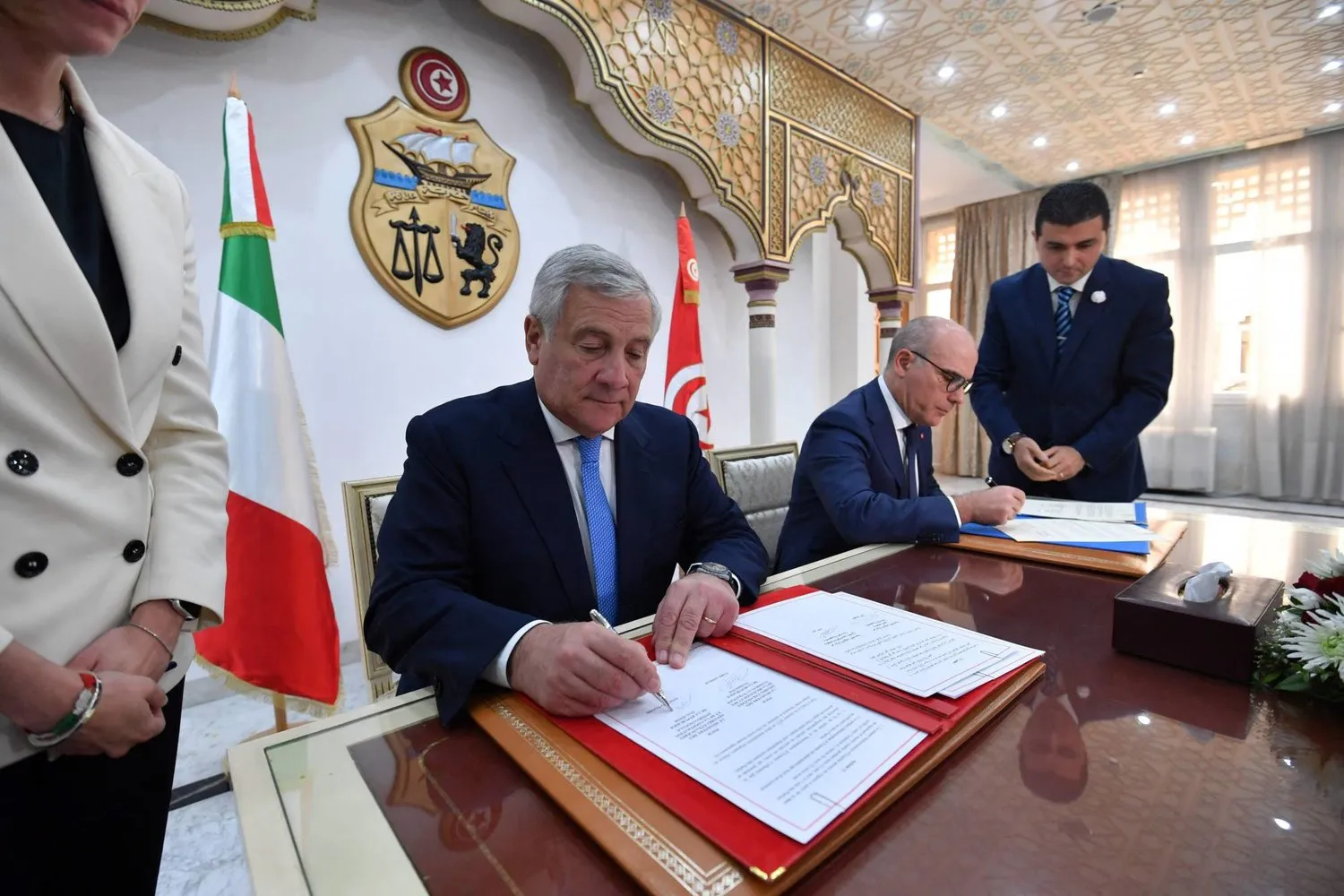Tunisia and Italy on Friday signed in Tunis a Memorandum of Understanding (MoU) to better manage the flow of Tunisian migrants to Italy.
The document was signed in the presence of Italian Deputy Prime Minister and Foreign Minister, Antonio Tajani, and his Tunisian counterpart, Nabil Ammar.
Under the agreement, an annual quota of 4,000 qualified Tunisian workers will be able to work in Italy with non-seasonal subordinate work contracts.
Minutes before the deal was signed, Tajani said his country is working to “promote regular migration as opposed to illegal migration” to combat human traffickers.
He said: “We want to offer jobs to people who want to work and to people who have been trained, who will not go wandering around Italy, but will go directly to work in agriculture or industry.”
Italian ambassador in Tunis Fabrizio Saggio recently said the Italian Agency for Development Cooperation will provide financial credits of 8 million euros to support the vocational training sector in Tunisia “so that it responds to European standards, and thus facilitate the entry of Tunisian workers into the Italian labor market.”
Saggio also highlighted the agency's readiness to open a credit line to small and medium enterprises worth 55 million euros, in collaboration with the Tunisian Agency for Vocational Training, a government body.
Tajani is in Tunis, together with the Minister of Agriculture, Food Sovereignty and Forestry, Francesco Lollobrigida, and the Minister of Labor and Social Policies, Marina Elvira Calderone, to meet their Tunisian counterparts in the agro-industry and agrifood security sectors.
Sea migrant arrivals to Italy have almost doubled in 2023 compared in 2022, with around 140,000 people coming ashore so far. Some 91% came from Tunisia, prompting Rome's efforts to help local authorities to stem the flow.









